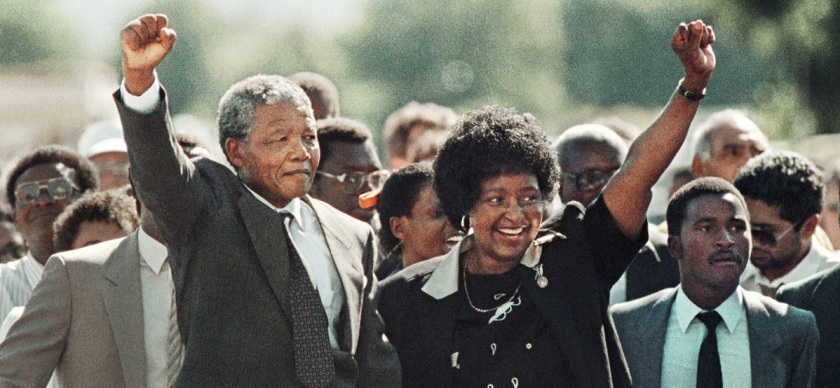After reading a biography I usually end up with words in my mind that express the heart of what that person’s life was all about. Warren Buffet is about integrity and diligence. Jack Welch is definitely about hard work. I though Nelson Mandela’s life would be summarised in words like ‘nonconformity’, ‘fight for freedom’, ‘endurance’ and ‘perseverance’. It was unquestionably about all these things but even though Mandela calls himself a freedom fighter, what most strikingly stands out, the idea that is woven through every line, that leads the plot and guides his actions, Nelson Mandela’s entire life shouts out ‘Reconciliation’.

I won’t go deep into South African history but you probably know it was a racist country with racist policies that culminated in the institution of apartheid in 1948, depriving all non-whites of democratic rights – like voting and the right to come and go – and the chance to go up the economic ladder. It created severe segregation of races and institutionalised the view that white people were superior to all other races, blacks in particular. Growing up in this environment, Nelson Mandela’s inconformity with the racist system grew together with his ever-increasing political engagement.
Mandela Fought the government with all possible weapons; legal actions, mass manifestations in non-violent protests and even violent enterprises. He became a prominent leader in the African National Congress, the black party, and endured nearly three decades of imprisonment for the sake of the cause he believed in.
In a racist environment, being constantly harassed by a specific ethnic group, it is very easy for racism to get you. Nonetheless, Mandela never forgot his fight was against prejudice and oppression, not whites. In passage after passage through the book, you see Nelson Mandela trying to ‘evangelise’ his oppressors teaching them about his struggle — and being successful in a number of his attempts. He didn’t only reconcile white with black, Mandela uses his incisiveness to bring together enemy parties, enemy politicians, to overcome his own pride and take the step to reconcile his organisation with the government, in the end he reconciles his country with itself.
Nelson Mandela’s biography has a moving end with the sight of so much hatred and oppression being overcome by justice; a culmination to a happy ending in a real world tale. I cannot finish this text with my own words and who better than a freedom fighter to comment on what freedom really is. Note that even in this simple paragraph or two his words transpire reconciliation.
I am no more virtuous or self-sacrificing than the next man, but I found that I could not even enjoy the poor and limited freedoms I was allowed when I knew my people were not free. Freedom is indivisible; the chains on any one of my people were the chains on all of them, the chains on all of my people were the chains on me.
It was during those long and lonely years [in prison] that my hunger for the freedom of my own people became a hunger for the freedom of all people, white and black. I knew as well as I knew anything that the oppressor must be liberated just as surely as the oppressed. A man who takes away another man’s freedom is a prisoner of hatred, he is locked behind the bars of prejudice and narrow-mindedness. I am not truly free if I am taking away someone else’s freedom, just as surely as I am not free when my freedom is taken from me. The oppressed and the oppressor alike are robbed of their humanity
Nelson Mandela